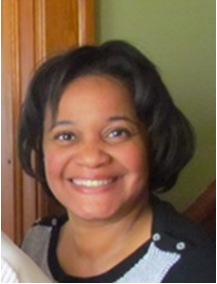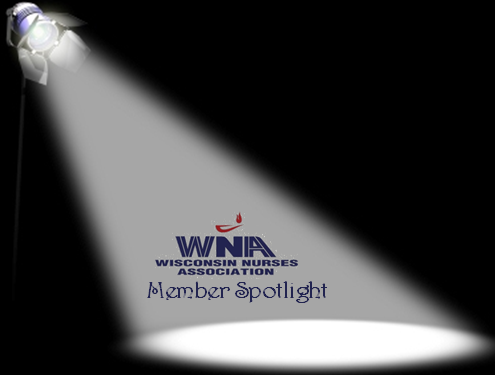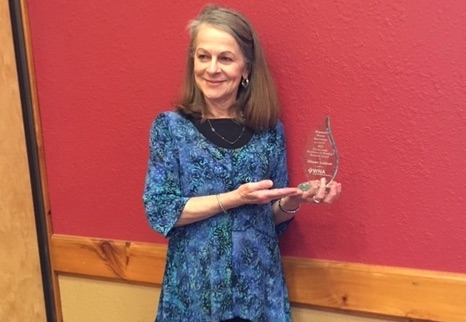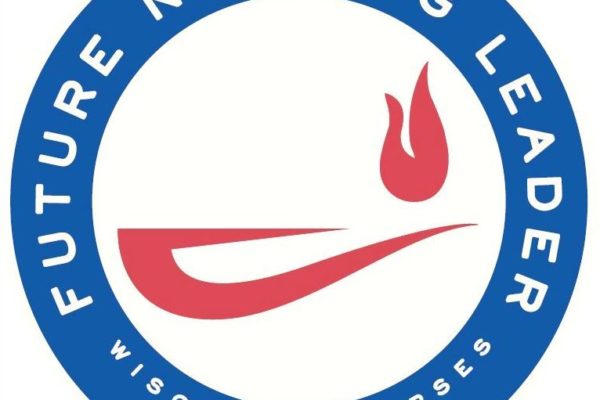WNA has so many incredible members making a lasting impression in nursing. We think it’s about time that everyone else knows about our incredible members, too. That is why we have a Member Spotlight series on our website. This is the space to showcase your talent. Tell us about your remarkable research, your touching stories, the obstacles you’ve overcome. Show us—and the world—what it really means to be a Wisconsin Nurse. Fill out your form to be spotlighted! WNA Member Spotlight Questionnaire
For our first member spotlight, we have Tiffany Barta from the WNA Board of Directors. 
What is your name (and credentials)?
Tiffany A. Barta RN, BSN
What have been your roles at WNA / how long have you been a member?
My current role is the Director –at-Large Board position with the WNA. I have been a member for about a year.
Where do you work?
City of Milwaukee Health Department
What is your job title?
Director of Nursing
What do you do in your job?
The Director of Nursing (DON) is at the executive/senior management and leadership level of Public Health Nursing at the Milwaukee Health Department (MHD). The Director of Nursing (DON) is the highest nursing authority at the MHD, and is responsible for providing leadership and oversight for MHD nursing practices and assuring that Public Health Nurses (PHN) demonstrate quality practice, and to facilitate the documentation and review of written policies and procedures to accurately reflect the most evidence based practice. The DON is also to assure that the department nursing programs are in compliance with state statutes and other laws governing public health nursing practice. This position works collaboratively with Division Directors and Programs Managers and functions as a subject matter expert and advisor in planning and evaluating public health nursing programs for MHD. The DON also works closely with the Commissioner of Health, Health Operation Administrator and Chief Medical Officer to assure quality nursing and public health services. The DON participates in all planning and decision making activities at MHD which affect nursing operations and services. The DON is focused on leadership and managerial responsibilities, upholds the mission and philosophy of public health nursing, formulates divisional policy, and develops and evaluates nursing services essential to the achievement of departmental objectives.
What do you do in your free time?
Golfing and cooking. I recently joined the Executive Women’s Golf Association (EWGA), and occasionally take cooking classes at Sur La Table.
What are you passionate about?
I enjoy many things in life, but what I really enjoy the most is spending time with my family. I have a husband and two wonderful children Lauren and Elliot. I don’t know that I show it as much as I should, but they are an important part of my life who I treasure the most. Every decision I make, I put them first and they inspire me to do my best in everything I do. They are my inspiration and my life.
I am also passionate about nursing, my administrative nursing position and equally concerned with the deficit of minority nurses completing their Bachelor of Science in Nursing (BSN) degrees. There are only a few minority nurse executives, and to allow all students the opportunity to engage and ask questions directly into my role, and to mentor our future nurse executives is such a wonderful feeling for myself, and my hope is to empower future nurses to follow. I want student nurses to see all of the possibilities that are available to them, and allowing them to get a glance of what nontraditional nursing roles look like it is critical to engage students with nurse leaders for continued nurse leadership in our city, state, and country.
Brag to us about one thing (or 2, or 5, or 10) you’ve done in your career.
- I have worked as a Public Health Nurse (PHN) for the City of Milwaukee Health Department for 11 years, in my 10 year I had applied for the DON position in that we had done without a DON for five years so I had a lot on my plate when I started in the fall of 2014. Milwaukee PHNs lost their union after Act 10 and it has been a challenge to retain nurses since then. At the time that I became the DON our turnover rate was 30-60%, depending on the program. I began a systematic review of hiring and retention, orientation and training, as well as our current practices and policies/procedures, and developed a 5- year strategic plan to address nursing practice with MHD. In my first year as DON she educated the members of the Common Council, Department of Employee Relations, and the Budget office, regarding the role of PHNs in the city’s health and safety, negotiated a 10-13% pay raise for new hires, which also included an adjustment of the pay range, reached out to all of the nursing colleges in the Milwaukee metropolitan area, began reviewing and updating policies and procedures for nursing accreditation, and more.
- As Director of Nursing I oversaw and directed the development of the Public Health Nurse Appraisal and its’ supporting documents for the Public Health Nurse Career Ladder (PHNCL). The Public Health Nurse Career Ladder (PHNCL or “Pencil” as it is affectionately called) Committee. They are all RNs, PHNs, and BSNs. We compressed two years’ worth of work into about 9 months. , reviewing current practices nationally, internationally as well as internally, to come up with a comprehensive system. The PHNCL provides a structure for promoting excellence by aligning individual competencies with core public health functions, standards of practice, and Milwaukee Health Department’s (MHD) mission, vision, values and objectives. Utilization of the PHNCL benefits both the Public Health Nurse (PHN) and the organization by establishing clear performance expectations which leads to improved public health outcomes.
The Public Health Nurse Career Ladder (PHNCL) is a standardized system of behavioral and performance benchmarks which provides a process for objective evaluation, career growth, personal development and appropriate compensation for the PHN. It is also intended to help achieve and fill departmental/ programmatic gaps, so that the overall objectives of the department is met.
All PHNs employed by the Milwaukee Health Department will participate in the PHNCL process. The PHNCL is a continuous process which begins with performance planning (i.e., setting reasonable performance expectations and standards), followed by routine coaching and counseling (i.e., providing constructive feedback, guidance and assistance to improve employee performance), culminating in performance evaluation and appraisal (measuring employee’s performance, skills, abilities, and training needs). The MHD PHNCL Model is a blending of Patricia Benner’s From Novice to Expert and other nationally recognized components including: The Standards of PHN Practice (American Nursing Association), the Core Competences for Public Health Nursing, the Ten Essential Public Health Services, the Eight Principles of Public Health Nursing Practice, Core Public Health Functions, and Healthy people 2020. The PHNCL creates a tiered system for PHN advancement from novice to expert. This system includes PHNs, nurse coordinators, nurse practitioners, management, and a matrix for appointments for non-nurse managers who supervise nurses.
- The Public Health Nurse Performance Appraisal (PHN PA) objectives are to:
- Provide each PHN a clear direction and developmental coaching
- Empower PHNs to achieve organizational and professional nursing goals
- Develop a well-motivated and competent workforce
- Assess and provide feedback regarding PHN’s performance
- Provide a fair, objective assessment related to compensation
- Improve communication between staff and management
- Increase PHN retention & decrease the expenses associated with hiring and training new PHN’s
- Provide a system of PHN recognition
- Define levels of PHN competency
- Provide a tool for PHN recruitment
- Maximize efficiency through effective utilization of each PHN’s skills
- Foster professional development
- Provide a path for professional development, including movement into management positions
- Increase job satisfaction and improve morale
- Develop individual competency which leads to increased overall MHD effectiveness and improve public health outcomes.
- I am currently working on a Mayor Tom Barrett Initiative called “Healthy Kids Collaborative” a partnership with schools of Nursing, Milwaukee Public Schools, and the Milwaukee Health Department. Utilizing nursing students and providing opportunities for student placements to fill gaps.
- I sit on the City of Milwaukee “Sister Cities Committee” on behalf of the Health Commissioner. It is facilitated by a Milwaukee Common Council Member.
- I was approved by Governor Walker’s office to participate in an advisory committee to review the Wisconsin State Statue Chapter DHS 139.08 Public health nurses qualifications.
- Board of Director for the Wisconsin Nurse Association (Director-at-Large), an elected position
- Nursing Mentor for “Project Beyond” Marquette University, and sits on the Advisory Board on behalf of Commissioner Baker
- 2016 Wisconsin Nurse of the Year Nominee
- 2016 I became a member of the Honor Society of Nursing, Sigma Theta Tau International.
- 2014 CityMatch/CityLeader recipient: CityMatCH is a national membership organization of city and county health departments’ maternal and child health (MCH) programs and leaders representing urban communities in the United States. The mission of CityMatCH is to “strengthen public health leaders and organizations to promote equity and improve the health of urban women, families, and communities.” Leadership training for emerging and mid-level urban maternal child health leaders. Selected recipients engage in nine months of intensive training on the MCH Leadership Competencies including one onsite meeting and a series of distance-based skills-building opportunities. They are also matched with a senior urban MCH leader in the field for a mentor/mentee relationship.
What does being a nurse mean to you?
Making a Difference. To be a great nurse essentially means you have many qualities that enable you to be a leader, a teacher, an advocate, and a friend. Nurses become a cocktail of acts seen by a variety of professionals from a priest, social worker, to a physician, and IT support. Nurses are strong, intelligent and show an abundance of compassion. Compassion is not a single quality rather an umbrella that encompasses many qualities. Compassion means you care, you are loyal, devoted, honest, and hardworking. It means you are willing to do more for others than for yourself. Compassion requires a humble non-judgmental individuals. We make a difference, sometimes just by listening to someone for a few minutes or answering a simple question. What may be routine for us is a matter of life-and-death for others. It is endearing when I am recognized by a former patient in a grocery store. “There’s my nurse!” exclaimed a child, months after I had given care to him in a home visit. I was embarrassed at being unable to place him, and immediately I thought “HIPPA” but tried to convey sincerity as I asked him how he was doing.
As nurses, we can look back and say that our efforts are effective, practical, and make a difference. Maybe not every day, maybe things don’t always go smoothly, and maybe we aren’t always perfect, but we can enjoy the satisfaction of knowing that at least we tried, and sometimes fought well against all odds.
What’s one thing you wish we asked you?
What is my favorite quote or philosophy – I am a huge Charles Schultz fan! I love the “Peanuts”. Below is one of my favorite quotes and a philosophy that I try to live by:
The Charles Schulz Philosophy
The following inspirational quiz is often called the Charles Schulz Philosophy or sometimes Charlie Brown’s Philosophy. It’s not actually written by him, although the quote at the bottom is from a peanuts cartoon. Enjoy the following quiz.
- Name the five wealthiest people in the world.
- Name the last five Heisman trophy winners.
- Name the last five winners of the Miss America.
- Name ten people who have won the Nobel or Pulitzer Prize.
- Name the last half dozen Academy Award winners for best actor and actress.
- Name the last decade’s worth of World Series winners.
How did you do?
The point is, none of us remember the headliners of yesterday. These are no second-rate achievers. They are the best in their fields. But the applause dies. Awards tarnish. Achievements are forgotten. Accolades and certificates are buried with their owners.
Here’s another quiz. See how you do on this one:
1. List a few teachers who aided your journey through school.
2. Name three friends who have helped you through a difficult time.
3. Name five people who have taught you something worthwhile.
4. Think of a few people who have made you feel appreciated and special.
5. Think of five people you enjoy spending time with.
Easier?
The lesson: The people who make a difference in your life are not the ones with the most credentials, the most money, or the most awards. They are the ones that care.
“Learn from yesterday, live for today, look to tomorrow, rest this afternoon.”
― Charles M. Schulz, Charlie Brown’s Little Book of Wisdom




